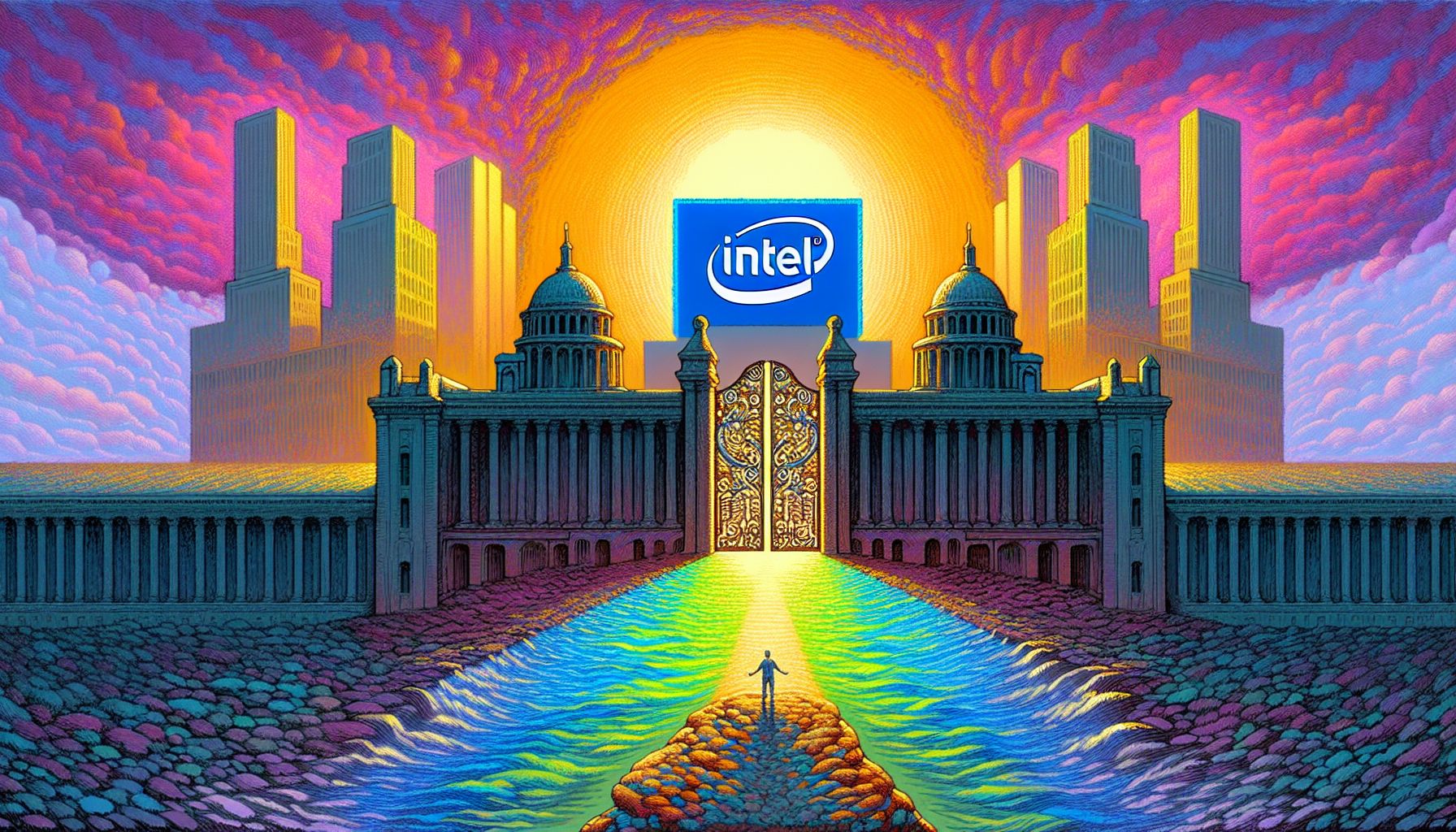Qualcomm Eyes Intel Acquisition: Shakeup Looms in Chip Industry

San Diego, Monday, 23 September 2024.
Qualcomm has approached Intel about a potential takeover, signaling a major shift in the semiconductor landscape. While no official bid has been made, the move could reshape the industry’s competitive dynamics and face significant regulatory scrutiny.
Context and Background
Qualcomm, a prominent player in the semiconductor industry, is best known for its Snapdragon chips, which power a vast majority of Android smartphones. The company is also a key player in the development of 4G and 5G technologies. On the other hand, Intel, once the world’s richest chipmaker, has faced significant challenges in recent years, including crashing computer chips and substantial workforce reductions. Despite these struggles, Intel remains a significant force in the laptop market with its x86 processors, which Qualcomm lacks.
Strategic Implications
The potential acquisition of Intel by Qualcomm could herald a new era in the semiconductor industry. Qualcomm’s interest in Intel stems from the latter’s strong foothold in the laptop chip market, an area Qualcomm aims to expand into. Intel’s x86 processors are a key asset, especially as Qualcomm seeks to diversify its product offerings beyond mobile devices. However, this deal is not without its challenges. Regulatory scrutiny, particularly concerning antitrust and national security, is expected to be a significant hurdle due to the size and influence of both companies.
Current Market Conditions
Intel’s market capitalization stands at approximately $93 billion, despite its shares falling nearly 40% in the past year. The company’s financial woes continued with a reported $1.6 billion quarterly loss in August 2024, and a plan to cut 15,000 jobs. Conversely, Qualcomm has seen a 55% increase in its share value, with a current market value of $169 billion. The contrasting fortunes of these two companies make the timing of the potential acquisition particularly advantageous for Qualcomm, as it looks to capitalize on Intel’s weakened state.
Regulatory and Industry Challenges
The proposed acquisition is likely to attract intense scrutiny from regulatory bodies, particularly in the United States and China, where both companies have significant operations. Historical precedents indicate the complexity of such deals; for instance, Broadcom’s attempt to acquire Qualcomm was blocked by the Trump administration in 2018 due to national security concerns. Similarly, Intel’s and Qualcomm’s past acquisition attempts faced regulatory hurdles. The potential deal could also face opposition from antitrust watchdogs concerned about reduced competition in the chip market.
Technological and Market Impact
If the acquisition goes through, it could significantly alter the competitive landscape of the semiconductor industry. Intel’s expertise in x86 processors could complement Qualcomm’s strength in mobile and cellular technology, potentially leading to innovations in both sectors. The merger could also affect the broader technology market, including AI servers and gaming consoles, where both companies have been vying for dominance. However, the integration process may be complex, requiring careful management of both companies’ technological and operational assets.
Conclusion
While the potential acquisition of Intel by Qualcomm remains speculative, the implications for the semiconductor industry are profound. The deal could redefine market dynamics, spur technological advancements, and face significant regulatory scrutiny. As Qualcomm and Intel navigate these discussions, the industry watches closely, anticipating a move that could reshape the future of semiconductor technology.

